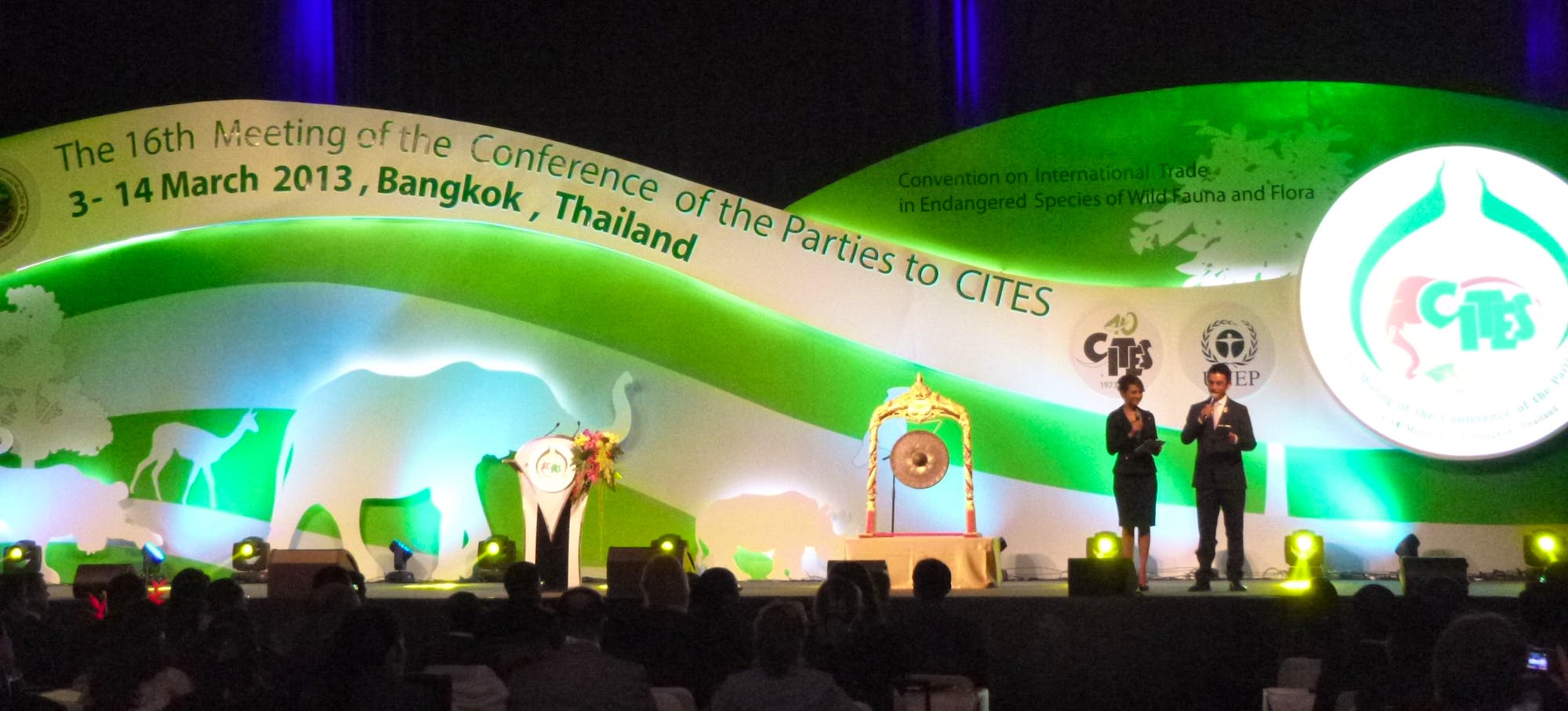Alejandra Goyenechea, International Counsel
This week, people from all over the world are meeting in Bangkok, Thailand to discuss how we can better protect wildlife. The Convention on International Trade of Endangered Species of Wild Fauna and Flora (CITES) is conducting its 16th Conference of the Parties, also called a CoP. During the Conference, delegates from 178 countries will have the opportunity to vote on a number of proposals that deal with the regulation of international trade of various endangered species. These events take place every three years at various locations around the world, and this year’s CoP is especially significant, since 2013 marks the 40th anniversary of CITES.
This is one of the most important environmental treaties in the world, and the only one created to regulate international wildlife trade. Through CITES, nations all over the world have been able to protect a number of endangered species by decreasing or banning the international trade of the animals and plants or their parts, cutting down on the demand for these items and putting fewer animals and plants at risk. For instance, CITES regulates the trade in elephant ivory. Other species and products being regulated by CITES include tiger and crocodile skins; the live trade in endangered parrots and macaws; the pet trade of pythons and iguanas; the aquarium trade of corals and sea horses; the collector’s trade of butterflies and beetles; the ornamental plant trade of orchids and cacti; the timber trade of mahogany and rosewood, among others. In total, CITES regulates the trade of more than 34,000 species of fauna and flora.

Alejandra and Juan Carlos at the CITES CoP in Thailand.
Defenders staff members have been attending these conferences and working on CITES issues since the 8th CoP in 1992. We have advocated for the protection of elephants, sea turtles, polar bears, macaws and parrots, mahogany, sharks, whales, frogs and other species. This time, we’re focusing our efforts on five species of sharks; two mantas rays; three freshwater rays; fifty species of rosewood from Madagascar, Belize, Thailand, Vietnam and Cambodia; and the Machalilla frog (Colostethus machalilla) from Ecuador.
Two of us are representing Defenders at CITES this year: myself (International Counsel) and Juan Carlos Cantu, director of our Mexico program. Both of us have been working on international wildlife conservation issues for a number of years. We’ll also be working alongside other members of the Species Survival Network (SSN), a group of more than 90 international NGOs of which Defenders is a member, to distribute scientific and trade information on the life history and recorded decline of several wildlife species to all of the delegates attending the conference. To ensure that the material is available in United Nations recognized languages, we produced all our information in three languages: English, Spanish and French. Juan Carlos and I are also multilingual, so we will be able to answer questions the delegates might have about the issues.
For the past two years, we have been working to encourage other nations to sponsor proposals on several species. We gathered information on each of these species and created materials to educate people on the issues and give them the opportunity to show their support. We created fact sheets, shark identification guides, posters with information about the proposals, USB drives (which included information on the species and proposals) in the shape of hammerhead sharks, and even lapel pins in the form of a manta, hammerhead shark and rosewood tree. From our booth at the convention center, we’ll be able to display and hand out these materials to the Conference delegates and other interested parties.
Our goal for the Conference is to ensure the delegates are well informed on why the proposals we are supporting are important. Delegates have the task of voting on more than 70 different species proposals, as well as 75 working documents that deal with the application and enforcement of CITES rules that regulate the trade of thousands of species. With such a job ahead of them, it is vital to provide delegates with the best information available so that they can cast an informed vote. With so many proposals on the table, and so many plants, animals and issues that need attention at CITES, our task is not easy, but we are ready to take it on to ensure protections for these vulnerable species.



